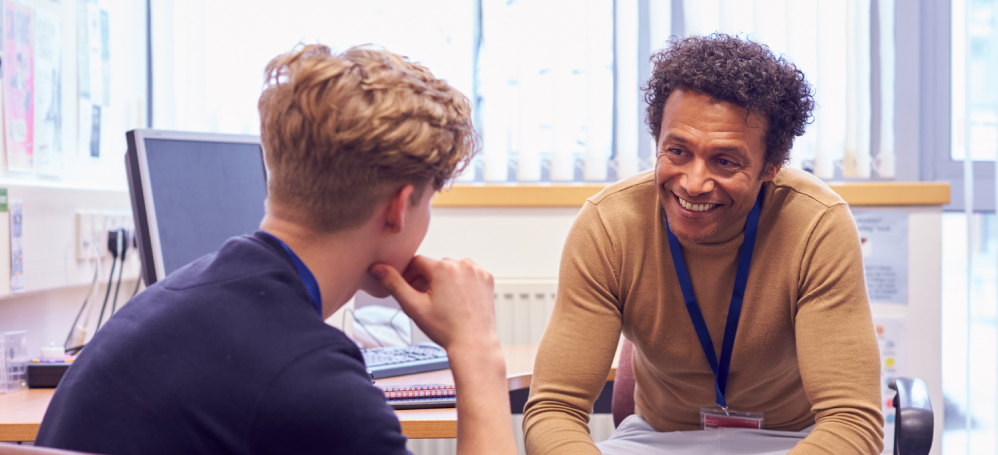
While giving others the tools they need to effectively communicate is amazing in itself, there are many reasons that speech-language pathology makes for a fulfilling career. Speech pathology is a diverse field full of a variety of opportunities to help others grow, engage in fascinating research, and even impact social change. We talked to speech pathologists and professors from all over to learn about all of the things that make this field so great!
Sponsored online speech pathology programs

Online MS: Pursue SLP Certification. Study FT/PT
Speech@Emerson enables you to earn an MS online and pursue SLP certification in as few as 20 mos. Learn the same curriculum as the on-campus program. Study FT or PT.
- Prepares you to pursue certification as an SLP generalist
- In-person clinical placements at faculty-approved partner sites
- As few as 20 months to complete
AD

Want to Become an SLP? Earn an MS Online at NYU
NYU Steinhardt’s online master of science program in Communicative Sciences and Disorders prepares aspiring speech-language pathologists with a comprehensive professional education.
- Prepares students to pursue SLP licensure
- Accredited by ASHA’s Council on Academic Accreditation
- As few as six terms to complete
- Full-time and part-time plans of study
AD

Online MS in Speech-Language Pathology from Pepperdine University
Pepperdine University’s online Master of Science in Speech-Language Pathology program combines a robust, innovative curriculum rooted in Christian values with a full-time or part-time option that features online learning, on-campus intensive experiences, and comprehensive clinical field practicums to prepare skilled, compassionate students for careers as speech-language pathologists.
- Full-time (five trimesters) or part-time (eight trimesters) options available.
- No GRE scores required.
- 400+ supervised, clinical learning hours are done at schools/clinics local to students
- Three onsite experiences build a sense of camaraderie and community throughout the program
AD
Make a Difference
In speech-language pathology, you make a difference in the life of every patient you help by improving their speech, language, and communication skills. Additionally, if you choose to go into research, you can study assessment tools, treatment methods, and more so that clinicians all over can better serve their patients
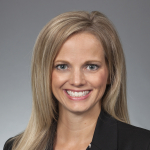
“Ultimately, what led me to my interest in becoming a professor was a desire to make an impact in the direction of healthcare. I wanted to make a difference in my field by providing clinicians and medical professionals guidance through evidence-based research that would improve the outcomes for children born with cleft palate.” – Dr. Jamie Perry, East Carolina University
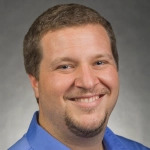
“The aspect of my research I’m most proud of is seeing the positive impact on clients, student clinicians, and professionals from our holistic interprofessional stuttering clinic actualized in life orientation shifts. Many clients have reported living life on their terms rather than feeling like they had to just survive from situation to situation. Students that we’ve followed up with report continuing to value interprofessional collaborations, other professionals, and having the client be the primary focus of their therapy. When the student sees and values the client before the disorder and symptoms that they present that’s what makes me proud.” – Dr. Dan Hudock, Idaho State University
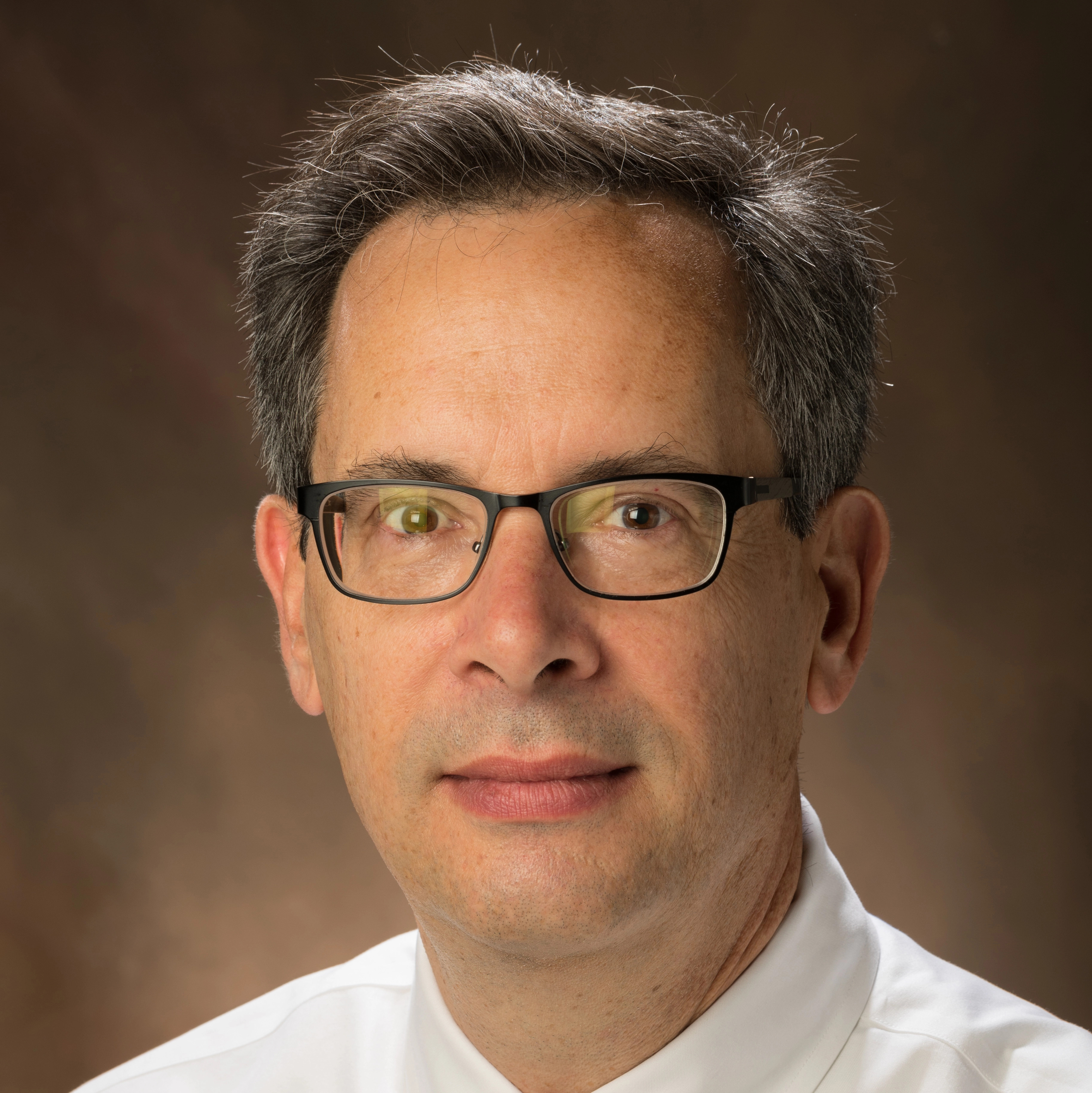
“Come into the field if you find you have a strong inner motivation to make a difference.” – Dr. Gerard Poll, University of Miami
Specialize in a Variety of Areas
You can choose to specialize in one of many areas of speech pathology, or you can find a career that allows you to interact with a wide variety of patients. Whether you want to work with adults or children, in voice or communication disorders, in a school or in private practice is all up to you.
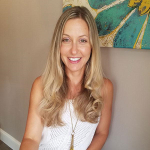
“What I enjoy most about our profession is that I CAN work in a variety of settings and I continue to do this because it is what keeps me feeling alive. I absolutely LOVE academia – and mentoring and teaching are really so special to me. It feels good when a student thrives under my tutelage. I keep in touch with many of my students and invite them to keep me posted on their careers.” – Nicole Kolenda, NYU
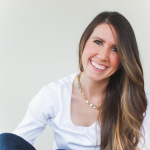
“Being an SLP is my dream job and always will be. I love that we get to work with such diverse age groups and skills. I’m always learning so it never gets boring!” – Nicole Allison, Speech Peeps
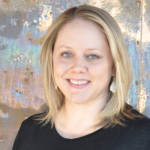
“There is something so wonderful about providing such necessary services to students in the school environment. We have to be so knowledgeable about such a variety of disorders, treatments, assessments, technology, etc. I have also been able to take on leadership roles in the schools. I am currently the Lead SLP in my district and have found that providing professional development, coaching, and leadership to SLPs and OTs/PTs is incredibly rewarding.” – Danielle Reed, Sublime Speech
Improve Literacy for Those of Lower Socioeconomic Status
The gap in literacy for children of differing economic means starts young- in a year’s span wealthy children hear 16 times as many utterances at home as children in low income households. Speech pathologists can empower parents to help their child’s language development, or help kids who have fallen behind catch up.
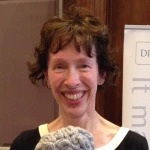
“I am very proud of my research demonstrating that it is possible for parents who are homeless, even with their own language literacy difficulties, to learn to use language facilitation strategies with their young children. Given the importance of language and literacy to successful life-long outcomes including quality of life, I am proud of this work because of the potential that it offers parents AND children who are homeless for improved language literacy abilities.” – Dr. Therese O’Neil-Pirozzi, Northeastern University
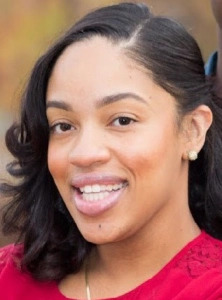
“I became interested in [researching the impact of poverty and use of African American English (AAE) dialect on literacy achievement] while I was an undergrad at Michigan State University when I learned that AAE use can have an adverse impact on literacy. Given that many African American children in the United States do not read on grade level, it was clear that this topic was critically important for the success of African American children.” – Dr. Ryan Lee-James, Adelphi University
Teach Others
All speech pathology students must fulfill practicum and clinical fellowship requirements under the supervision of a professional. Depending on your career path within speech pathology, you may have the opportunity to help mentor the next generation of professionals in your field.
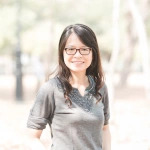
“I enjoy mentoring students for aphasia research. The most rewarding feeling for me is to see my students’ passion grow for working with people with aphasia and other neurodegenerative disorders during this research experience.” – Dr. Hsinhuei Sheen Chiou, Minnesota State University Mankato
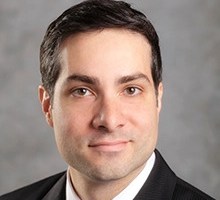
“I am really proud of the students I have in my lab and how they have risen to the challenges that the research presents has been great. We have 5 graduate student research assistants and 2 undergraduate volunteers that not only run some of the fNIRS studies on their own (due to IRB restrictions), but have been so successful at initiating and completing independent research projects.” – Dr. Nicholas Barone, University of Virginia
Grow as a Person
Oftentimes in life, the people you help grow will help you grow too. Speech pathology is no exception.
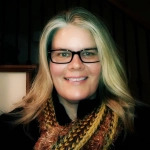
“As a clinician of 22+ years and clinical researcher who has partnered with the autistic community for over a decade and a half, I have experienced quite an evolution in my journey related to disability. My current work reflects a neurodiversity perspective of autism, but it has not always done so. I was not always familiar with this viewpoint, nor the broader social model of disability. I feel proud that I have grown (and continue to grow) in my understanding of disability and how I can best partner and ally with the autistic community, both as a researcher and clinician.” – Dr. Amy Donaldson, Portland State University
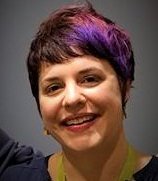
“Communication exists in every plane of human existence, and it is most taxed during these key life questions. Most of our clients come to us during a period of transition: a job promotion, an upcoming marriage, change in family role. They come with questions about communication, but the answers are closely tied to the life situation answer itself – and I never know what that is! But we figure it out together, and that’s why I love this job. Our clients write their own paths, and we are fortunate enough to be a sidelines coach for some specific skills. Being invited to experiencing the process of figuring life out, with my clients, has changed who I am as a person.” – Katie Gore, Speech IRL
Help Transgender People Find Their Authentic Voice
When making the transition to one’s true gender, finding the right voice can be hard, as well as harmful if not done safely and properly. Voice clinics offer trans men and women the opportunity to find that voice safely and effectively.
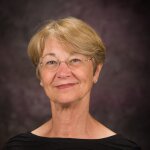
“In terms of the project I completed with a transgender client, I was most proud of the client herself and the courage and tenacity she showed in discovering and mastering her true voice. In order to do this, she devised a very creative and effective way (using a supportive community of massively multiplayer online gamers) to practice the voice she was learning in her voice sessions. This was prior to coming out to her family and those closest to her, eliminating all the people easily available for practice. We can appreciate how this might affect her progress, given the need for practice and opportunities to generalize skills outside of sessions. I wanted to share this client’s experience with other SLPs to demonstrate in a concrete way how clients often have the best, that is, most feasible and meaningful, solutions to their problems, if we frame our clinical interactions in a way that allows us to hear and work with what our clients are saying about their motivations and perspectives.” – Dr. Linda Hoag
Help Children
If you are interested in working with kids, speech pathology allows you to do so in a school, private practice, or even a medical setting.
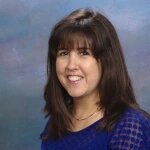
“Integrating real life and therapy is the most important aspect of what we do. If the children cannot generalize the skills in everyday routines, we have done a disservice to the children. We work very closely with the parents to understand what is going on at home and we tailor programs to meet the specific challenges. This is important to note because the outside world often forgets this, but children with autism are children. They need to experience the world like all children do.” – Pam Drennen, Kidmunicate
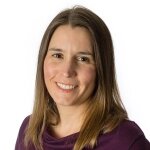
“I fell in love with the creativity, play time, and silliness that working with young children not only allowed but encouraged.” – Cheri Chin, Super Power Speech
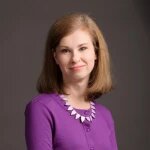
“After working as a school-based speech-language pathologist for nearly a decade, I became convinced that written language was an area in which our clients were being underserved. The academic struggles these children faced as a result of their literacy-related deficits deeply concerned me and led ultimately to my returning to school to pursue my doctorate. During this time, I focused my research on the development of literacy interventions that could be used with our clients to facilitate academic success.” -Dr. Joy Good, Arkansas State University
Address the Unique Needs of Bilingual Speakers
Bilingual speakers do not always have access to a speech pathologist who is educated on their unique needs. By specializing in this area you can help make equitable speech and language services available for all children.
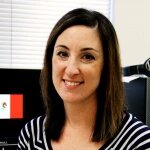
“I see my research program as “social justice through science”. I see the work my lab does as improving the lives of Latino children by placing them on the right educational track. If we can get typical kids in the classroom full time and kids with phonological disorders in the speech room, then we are doing something to increase equity in the educational system.” – Dr. Leah Fabiano-Smith, University of Arizona
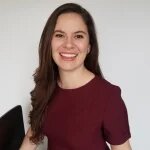
“I am most proud of the work that gives a voice to underrepresented groups. In the language acquisition literature for example, the typical population of study includes white monolingual English speakers from well-educated families. Yet, SLPs are tasked with providing equitable services for people of all backgrounds, across socioeconomic levels and linguistic backgrounds. One of my sincere hopes is that my work will to help to fill the gap in the literature on language development in Spanish learners in the United States. My pride in this work comes from my personal experience: as a daughter of Mexican immigrants, I too grew up in a Spanish speaking home in the United States. As a Latina scholar, this work is a way of serving my community.” – Dr. Stephanie De Anda, University of Oregon
Find Answers
There are still many unknowns in speech-language pathology. As a researcher, you can search for answers that improve treatment outcomes, access, and more for patients.
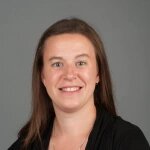
“I had my first experience with a person with a voice disorder in my graduate program. I loved how it incorporated both very scientific information with a bit of art in getting a good voice quality. After that, I sought out experiences with voice in my clinical experiences, externships, and later in my first job. I became the “voice person” at the outpatient clinic where I was working. I loved seeing the progress these individuals could make. I’m not going to lie, I also liked working with people who were neurotypical and adults. As I moved into my doctoral program, I knew I had to keep working in the area of voice. There are just so many unanswered questions in all areas of our field, but in voice I felt I could make some contributions to our Knowledge.” – Dr. Abby Hemmerich, University of Wisconsin Eau Claire
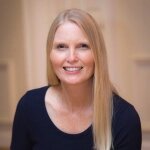
“Being brave and taking a chance on studying something that most people try to avoid… how stress affects language performance and recovery. The systematic study of this topic within aphasia is uncharted, so beginning this line of inquiry takes a lot of perseverance, patience, and independent learning.” – Dr. Jacqueline Laures-Gore, Georgia State University
Integrate Your Other Passions
In speech pathology, there are often opportunities to take your passions and use them to help patients in an effective, evidence-based way.
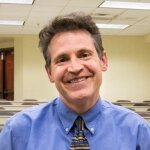
“I always liked creative problem solving and I liked working with technology. Putting all these things together got me interested in computer interfaces for children with complex communication needs.” – Dr. John McCarthy, Ohio University
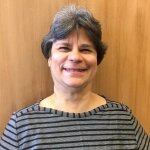
“My friend’s son has Down syndrome, and she told me that both she and her husband had noticed significant improvements in his overall communication, his intelligibility, and in his self-confidence. Shortly after [a performance of his], I decided to work with several of my colleagues to create a program for adolescents and young adults with developmental disabilities and moderate to severe communication impairments. I was interested in studying the efficacy of using activity-based intervention with this population to embed speech, language, communication, and social goals in activities associated with theatrical productions.” -Dr. Angela Losardo, Appalachian State University
Sponsored online speech pathology programs

Online MS: Pursue SLP Certification. Study FT/PT
Speech@Emerson enables you to earn an MS online and pursue SLP certification in as few as 20 mos. Learn the same curriculum as the on-campus program. Study FT or PT.
- Prepares you to pursue certification as an SLP generalist
- In-person clinical placements at faculty-approved partner sites
- As few as 20 months to complete
AD

Want to Become an SLP? Earn an MS Online at NYU
NYU Steinhardt’s online master of science program in Communicative Sciences and Disorders prepares aspiring speech-language pathologists with a comprehensive professional education.
- Prepares students to pursue SLP licensure
- Accredited by ASHA’s Council on Academic Accreditation
- As few as six terms to complete
- Full-time and part-time plans of study
AD

Online MS in Speech-Language Pathology from Pepperdine University
Pepperdine University’s online Master of Science in Speech-Language Pathology program combines a robust, innovative curriculum rooted in Christian values with a full-time or part-time option that features online learning, on-campus intensive experiences, and comprehensive clinical field practicums to prepare skilled, compassionate students for careers as speech-language pathologists.
- Full-time (five trimesters) or part-time (eight trimesters) options available.
- No GRE scores required.
- 400+ supervised, clinical learning hours are done at schools/clinics local to students
- Three onsite experiences build a sense of camaraderie and community throughout the program
AD

